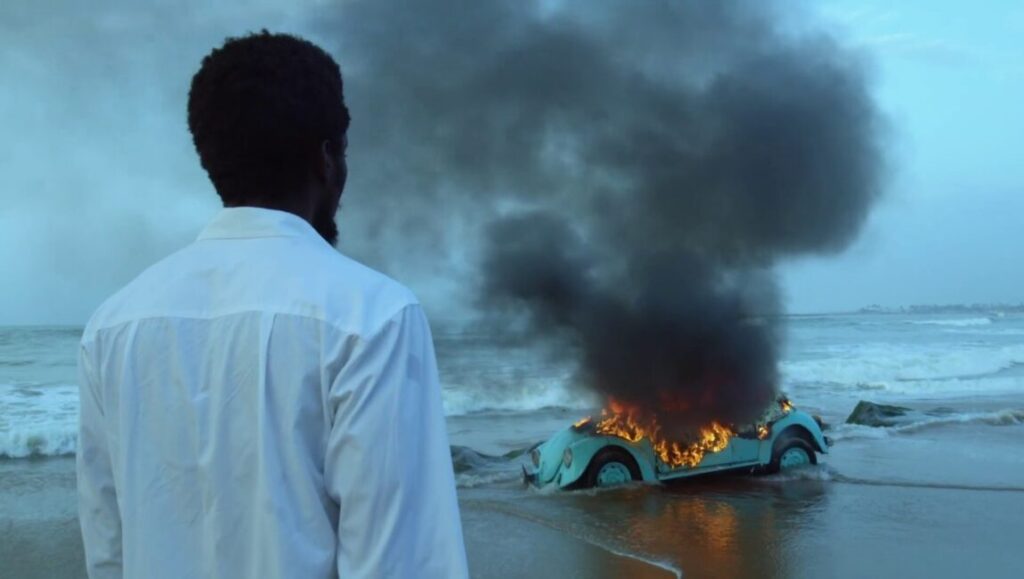The directorial debut of Ghanan filmmaker Sam Blitz Bazawule takes a while to get where it’s going; the plot synopsis of the 80-minute film that’s floating around the internet really only describes the last 20 or so minutes. The Burial of Kojo is ostensibly about a young girl who travels through a mystical dream world to save her father from an abandoned mine, but saying it like that is kind of like saying that Citizen Kane is a movie about a guy looking for a sled — there’s a lot more that goes on in the interim. This is both the film’s gift and curse: so much is packed into a brief running time. At its core, The Burial of Kojo is an exploration of family relationships, of age-old feuds and their tendency to incur collateral damage. Esi (Cynthia Dankwa) is both the young girl at the center of this narrative, and also its narrator — as an adult (Ama K. Abebrese), looking back on the death of her father, Kojo (Joseph Otsiman), and his contentious relationship with his brother, Kwabena (Kobina Amissah-Sam). Yet all is not as it seems in The Burial of Kojo, as Bazawule constantly shifts the story in and out of the realm of the supernatural — or, at the very least, he blends this real-world story with a hazier sense of spiritualism
Like a kind of African Wizard of Oz by way of Beasts of the Southern Wild, The Burial of Kojo employs a magical-realist aesthetic to take us inside the unique fantasy world of a young girl’s imagination.
Much of Esi’s life is based on a vision dreamt by her father — in which Esi was destined to save the world. The girl’s unearthly journeys take her into a plane populated by figures of Ghanan myth and superstition — figures that soon reveal themselves to be avatars of people from Esi’s real life. Like a kind of African Wizard of Oz by way of Beasts of the Southern Wild, The Burial of Kojo employs a magical-realist aesthetic to take us inside the unique fantasy world of a young girl’s imagination. And while there are moments in which the film achieves a kind of breathtaking majesty, thanks to Bazawule’s strong visual sense, a lack of focus often undermines that power. There are so many elements at play here that they never quite meld into a coherent whole. Bazawule experiments with aural and visual techniques (his use of non-diegetic, tonally incongruous music recalls that of the great Senegalese filmmaker Djibril Diop Mambéty), exploring the bounds of the cinematic medium and testing his facility with its language. Flashes of brilliance crop up, but the film still feels as if it’s a trial run for something much better, as if Bazawule is merely warming up… he never quite corrals the disparate elements of The Burial of Kojo into a cohesive artistic statement. But a singular beauty, and Bazawule’s willingness to try new things, suggests promise for things to come.
You can currently stream Sam Blitz Bazawule’s The Burial of Kojo on Netflix.


Comments are closed.